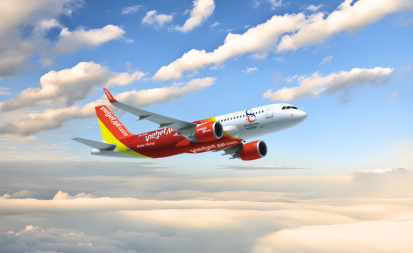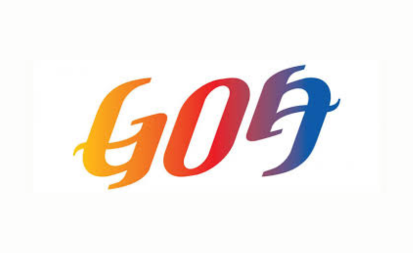Pace of travel industry transformation set to accelerate with 14% increase in technology investment planned for 2024
98% of airlines have implemented or plan to implement biometrics at airport services. 85% of respondents from the hospitality sector anticipate that personalization could yield over a 5% growth in incremental revenue. Bengaluru, 14th March 2024: New global research

- 98% of airlines have implemented or plan to implement biometrics at airport services.
- 85% of respondents from the hospitality sector anticipate that personalization could yield over a 5% growth in incremental revenue.
Bengaluru, 14th March 2024: New global research from Amadeus, Travel Technology Investment Trends, has revealed a strong appetite for investment across the travel sector in 2024. Nearly all (91%) travel companies surveyed said that they expect ‘moderate to aggressive’ increases in investment in their organizations in 2024.
Launching today, the research – which examines eight distinct sectors across the end-to-end journey in ten markets – is the first truly comprehensive work of its kind. It benchmarks investment intentions and technology priorities for global full service and low-cost airlines, airports, hotels, travel sellers (online, business and leisure), corporations and travel payment departments across the world as they stand today. It also captures their ambitions for the future.
Travel technology investment to increase across the industry
Alongside business growth plans, the travel technology market looks bright for 2024. Over two thirds (67%) of senior decision-makers in the sector expect to increase investment specifically in technology this year when compared to spend in 2023.
By sector, the average increase in spend forecasted for 2024 are as follows:
| Sector: | Average percentage increase: |
| Airports | 17% |
| Corporations | 15% |
| Hotels | 14% |
| Airlines | 13% |
| Travel sellers | 13% |
| Travel payments | 12% |
Key sector technology investment expectations
Embracing the potential of smarter retailing, personalization and driving digital efficiency are the top priorities for 2024. Some of the key takeaways from respondents include:
- Full-service airlines expect to see an 18% increase in revenue from switching to modern retailing and are optimistic that the transition to ‘Offer & Order’ will take place within the next four years.
- In total, 60% of airports expect to roll-out biometrics across the complete airport experience in the next five years, including check-in, bag-drop, lounge and boarding.
- Some 85% of respondents from the hospitality sector anticipate that personalization could help them to deliver more than 5% growth in incremental revenue.
- NDC is the top technology for implementation by leisure travel agents over the next 12 months – cited by 40% of the agents questioned.
- A third of corporate travel managers said their organizations intend to digitize the complete end-to-end expense management process over the coming 12 months.
- A third of travel payments leaders confirmed their organizations are planning to better manage global payments flows by implementing payments orchestration in the next 12 months.
“The findings match our on-the-ground experience with customers – every area of the travel industry is increasing investment in digital transformation. It’s crucial this spending delivers maximum impact and improves the traveler experience across the travel ecosystem. Existing technologies, such as biometrics, are already helping to make trips more contextualized and relevant. At the same time, the emergence of Generative AI promises to increase the pace of change still further. Travelers will experience significant improvement to the on-trip experience in the coming years, with commitment, investment and collaboration across the ecosystem combining to make travel work better.”
Decius Valmorbida, President, Travel, Amadeus
“We know that the right technology is the key to connecting and unlocking the value of our travel ecosystem. Hoteliers, airlines and the whole sector are right to be ambitious about the next generation of technology that we are building together. Travel providers can see huge potential for a better customer experience as well as significant growth and control if they get their investment strategies right now. We can see clear ambition and commitment to evolution from this research and are excited to be at the forefront of this journey with our customers.”
Francisco Pérez-Lozao Rüter, President, Hospitality, Amadeus
Top priority technologies for 2024 and by 2029
Machine learning was perceived by travel industry leaders to be the most important technology to their businesses – both this year and in five years’ time. Data analytics and cloud are also seen as top investment priorities by all sectors.
| This year – most important technologies | By 2029 – most important technologies |
| Machine learning | Machine learning |
| Data analytics | Generative AI |
| Digital payments | Cloud computing |
| Digitalization | Digital payments |
| Cloud computing | Data analytics |
The results of Travel Technology Investment Trends were launched in Extended Reality in an Amadeus Lounge created in collaboration with Amadeus’ strategic partner Accenture.
During the first half of this year 2024, Amadeus will release in-depth reports examining each sector explored in the research – full-service and low-cost carriers, hotels, airports, corporate travel managers and payments, as well as travel sellers, including business travel agents, leisure travel agents and online travel agents.
Methodology
Amadeus commissioned an online survey with an independent market research agency, Opinium, which concluded in Q4 2023. Over the course of the research, 1,253 of the leading travel technology decision-makers were surveyed online across the world.
Their expertise spans the airline (full service and low-cost carriers), travel distribution (online travel agencies, business travel agencies and leisure travel agencies) as well as hotels, airports, corporate travel management and travel payment sectors. The insights are global in nature, with senior decision makers from the UK, France, Germany, UAE, USA, Mexico, Brazil, India, China and Korea represented.
—-
 English
English French
French German
German Italian
Italian




